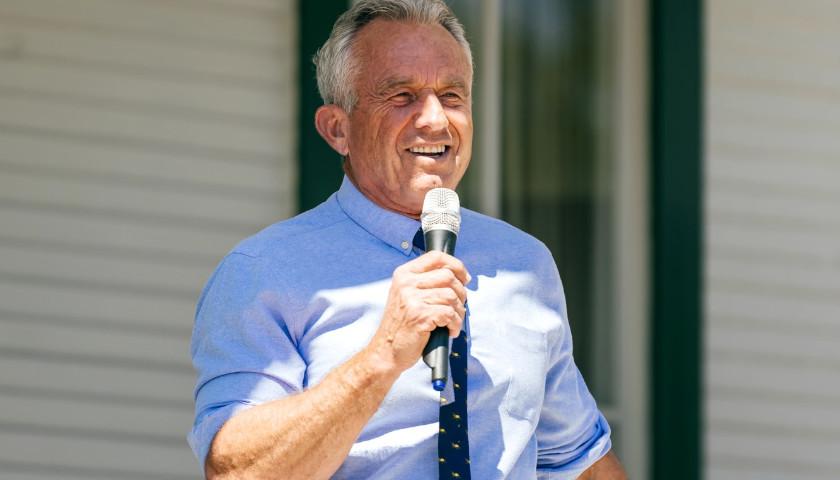by Kristi Dunn
Our health care institutions were put to the test during the COVID-19 pandemic, stretching everything from large hospitals and pharmacies to local emergency rooms and makeshift testing sites. We saw our medical personnel endure unprecedented strain throughout the public health crisis. As a health care professional myself, I know the unique challenges that the medical community faces, whether it’s during times of crisis or times of calm. At the end of the day, we do our work to serve patients in need. And as health care costs in Tennessee and across the nation are getting more out of control, we need to zero-in on the issue of health care affordability.
In Governor Lee’s 2023 State of the State Address, I was glad to hear that substantial investment was being earmarked for our state’s health system, particularly with regards to low-income children, pregnant women, youth with special needs and those in the foster care and adoption community. As a mother, this is the kind of long-term investment and commitment that gives me hope for the future of our state’s public health landscape. But it will be an uphill battle for Tennesseans as we face heightened, long-standing public health challenges in many of our communities.
Chronic illnesses like heart disease, cancer and diabetes are the leading causes of death and disability in the United States. These conditions have a measurable impact on hundreds of thousands of Tennesseans. Nearly 14 percent of adults in Tennessee have been diagnosed with diabetes, with 10 percent told they had prediabetes. This figure is likely much higher considering the number of undiagnosed cases. One in three children in Tennessee are also overweight. One in five is obese.
The high cost of care is an additional, unnecessary burden. We know that affordable health care is still out of reach for far too many Tennesseans. And even though the issue of high health costs is a looming challenge for which there is no quick fix, it’s imperative that we constantly chip away at the issue, rather than let it grow and worsen over time. One burden that I’ve seen occur more and more is that patients are suddenly seeing higher charges on their doctor’s bill than they did previously for the same service. Why is this?
It can be attributed, in part, to the consolidation of private doctors’ offices by large hospital systems. Once these practices are absorbed, the corporate hospitals are charging more for the same services delivered. Patients should not see costs go up simply because ownership of a medical facility has changed. It’s practices like this that keep health care costs high, and it’s time we change it.
Before the end of this year, I hope influential lawmakers like Senator Marsha Blackburn will heed the call to lower health care costs for Tennesseans and focus on legislation that will move us closer towards this goal. Legislation that Senator Blackburn, Senator Hagerty and the entire Tennessee delegation can support is the Site-based Invoicing and Transparency Act (SITE) in the Senate and the Facilitating Accountability in Reimbursements Act (FAIR) in the House.
Site-neutral payment reform like provisions in the SITE Act could reduce Medicare spending by $153 billion over the next decade. With varying levels of spillover savings in the private sector, reforms could also lower total national health expenditures by up to $672 billion. Fair billing practices are a steppingstone to these site-neutral savings.
This potential for substantial savings should inspire every lawmaker to support fair billing reforms like site-neutral payments. I can’t imagine why any lawmaker or medical professional would not support such a commonsense reform that would benefit consumers, taxpayers, and the Medicare system as a whole.
We know that high facility fees charged by hospitals have negative effects on patients, all while medical debt continues to grow and people are opting out of necessary medical treatment because they simply don’t have the funds. With more hospital mergers expected to be the norm, it’s imperative that unfair hospital billing practices are nipped in the bud.
Let’s move the needle on high health care costs plaguing consumers – it’s a promise owed to so many Americans who feel crushed under the weight of inflation, high rent, medical debt and other mounting expenses. Fair billing reform like the SITE Act and FAIR Act should be a top priority for lawmakers moving forward.
– – –
Kristi Dunn is a mother, health care worker, and activist based in Wilson County, Tennessee.






The best way to bring down medical costs is to get the government OUT of healthcare. When the government gets involved in anything, costs go up and service goes down. E.g., the amount of time spent filling out government paperwork for provided healthcare is staggering.
The Dept. of Education was established by Jimmy Carter, and we now have high school graduates who are functionally illiterate.
Be careful what you wish for.